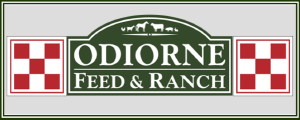 Getting Your Kid off to a Healthy Start: Winter kiddings are happening soon. A proper program for raising goat kids begins prior to birth, because producing a healthy newborn kid means meeting the nutritional needs of the doe while she is gestating.
Getting Your Kid off to a Healthy Start: Winter kiddings are happening soon. A proper program for raising goat kids begins prior to birth, because producing a healthy newborn kid means meeting the nutritional needs of the doe while she is gestating.
Once the kid is born, it’s really up to you to make sure it gets off to a good start.
Newborn kid goat care and management
There are two management practices that are critical to the future health of a newborn kid. First, dip the naval cord in a tincture of iodine solution. This will help prevent disease-causing organisms from directly entering the body. Iodine treatment will promote drying of the cord to help it break away cleanly from the navel. Do no remove the cord; allow it to dry and fall off on its own. Early removal can result in the kid bleeding to death.
Even more critical to a kid’s future health is making sure it is fed colostrum as soon after birth as possible. Colostrum is the first milk produced by the doe. Colostrum contains antibodies which provide the kid’s initial immunity against diseases. Since the antibodies in colostrum can only be effectively absorbed in the first 18 hours after birth, feeding as early as possible is recommended. The amount of colostrum fed in the first 24 hours should be 10% of the kid’s body weight. Bottle feeding colostrum helps ensure adequate consumption. Freeze and save excess colostrum for orphaned kids.
Disease organisms, particularly caprine arthritis encephalitis (CAE), can be transmitted from the doe to the kid through the colostrum. Transmission can be avoided by feeding kids colostrum from does shown to be CAE-free, using heat-treated colostrum or by feeding a colostrum replacement. After kids consume their colostrum, they can be left with the doe to nurse or started on milk replacer, such as LAND O LAKES® Doe’s Match® Kid Milk Replacer.
Bottle feeding kid goats
Keep kids on a proper feeding schedule and restrict intake when bottle feeding. Overfeeding can lead to diarrhea, bloat and even death due to Clostridium perfringens, which thrive on excessive starches and sugars in the digestive tract (this is called “overeating disease” or enterotoxemia). Kids can be aggressive eaters, and it is tempting to give them more than they should have, so be adamant about sticking with a recommended program. The feeding program for a typical kid goat is outlined below.
| Age | Amount of liquid milk per feeding | Feeding Schedule |
|---|---|---|
| Day 1 | Colostrum, 10% of body weight* | |
| Days 2 – 10 | 4 – 6 oz | 4 – 5 times/day |
| Days 11 – 21 | 7 – 12 oz | 3 – 4 times/day |
| Days 21 – weaning | 12 – 16 oz | 3 times/day |
*e.g., a 4-lb kid would need 0.4 lbs of colostrum, or about 6.5 oz (0.4 lbs x 16 oz/lb)
Smaller kids should eat at the lower end of the range, larger kids would need the higher amount in the range provided.
Weaning kid goats
When kids are offered a good quality hay or pasture plus a creep feed, they can be weaned as early as 30 days of age, but it is better to wait until 6 to 8 weeks. A better measure for weaning a kid is when it weighs at least 2 to 2.5 times its birth weight and is eating a significant amount of dry food. For example, it may help to gradually reduce the amount of milk replacer being offered as you approach the designated weaning date. Kids will start consuming hay or pasture by 2 weeks of age; this intake of fiber stimulates the development of the epithelial lining of the rumen, which is critical for future digestive health and function. Shortly thereafter they can be offered a fortified concentrate feed such as Purina® Goat Grower or Purina® Goat Chow, both of which will provide critical nutrients.
These nutritional steps will help you make sure your kids get off to a healthy start for a long life.
Environmental management
Environmental management is also important. House kids in clean pastures or dry lots. Avoid crowding. Shelter from the elements is essential. The drier the premises, the less chance for exposure to pathogens and parasites, all of which love moisture. Proper vaccination and parasite control programs will minimize chances for future health problems.
With proper care, your kids will be off to a long, healthy and productive life.
In conclusion, Odiorne Feed has all your sheep and goat needs.
Article Source: Mikelle Roeder, Ph.D. for Purina Mills
